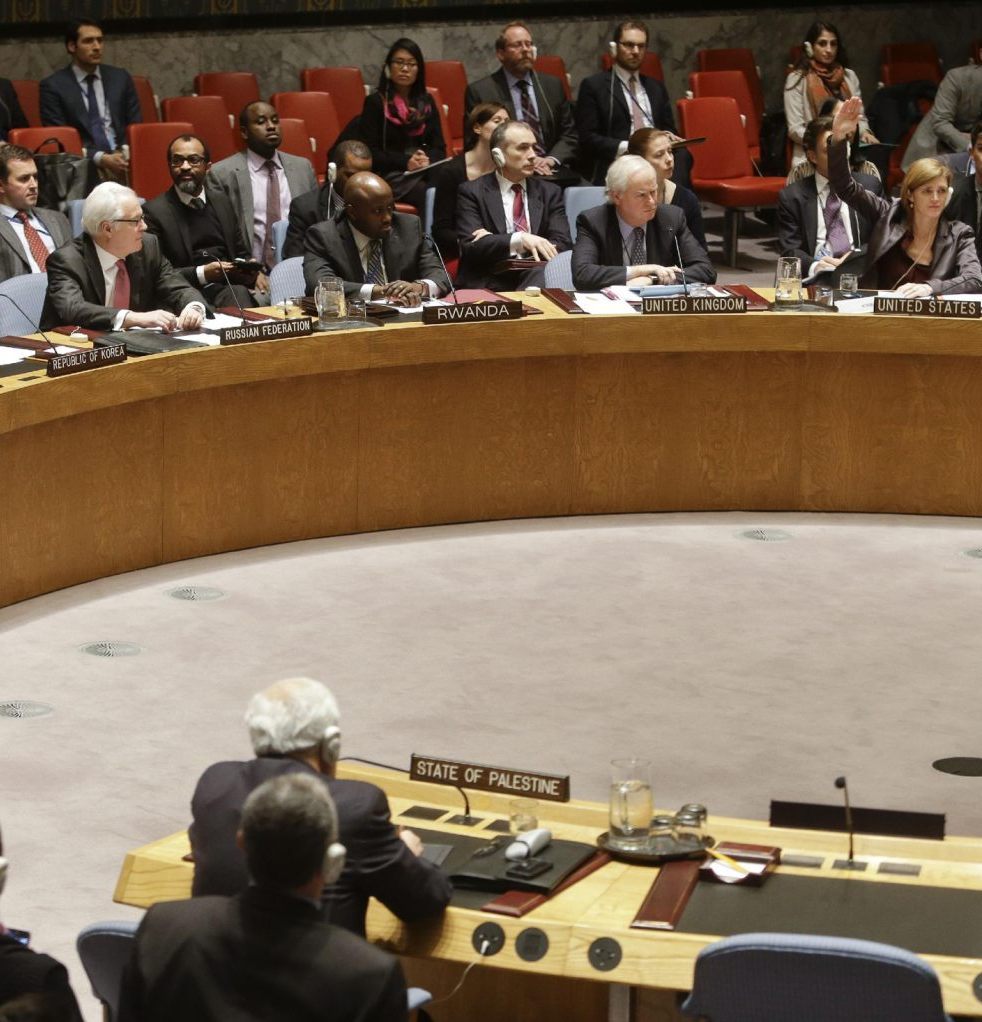U.N. rejects Palestinian resolution to end Israel’s occupation
The U.N. Security Council has rejected a Palestinian resolution calling for peace with Israel within a year and an end to Israel’s occupation by 2017. The resolution failed to muster the minimum nine “yes” votes required in the council for adoption. There were eight votes in favor, two votes against and five abstentions. Washington, Israel’s closest ally, said it could not support the draft because it was not constructive and failed to address Israel’s security needs. The Palestinians, frustrated by the lack of progress on peace talks, have sought to internationalise the issue by seeking U.N. membership and recognition of statehood via membership in international organisations. Several European parliaments have adopted non-binding motions calling for recognition of Palestine.
We voted against this resolution not because we are comfortable with the status quo. We voted against it because … peace must come from hard compromises that occur at the negotiating table.
U.S. ambassador the the U.N, Samantha Power
U.S. Ambassador Samantha Power criticized the decision to bring the draft resolution to a vote as a “staged confrontation that will not bring the parties closer.” She added that the resolution was “deeply unbalanced” and didn’t take into account Israel’s security concerns. Until shortly before the vote, council diplomats had expected the resolution to get nine “yes” votes. But Nigeria, which was believed to support the resolution, abstained. This impatience, and frustration over the Security Council’s paralysis in dealing with the Israeli-Palestinian conflict, was echoed by many on the council, including the United States.
We believe this to be a strategic mistake. Just as casting off our proposals to do brainstorming in the council in order to determine ways to reinvigorate the negotiating process, including sending to the Middle East a council mission.
Russia’s U.N. Ambassador Vitaly Churkin, a strong supporter of the resolution

Politics